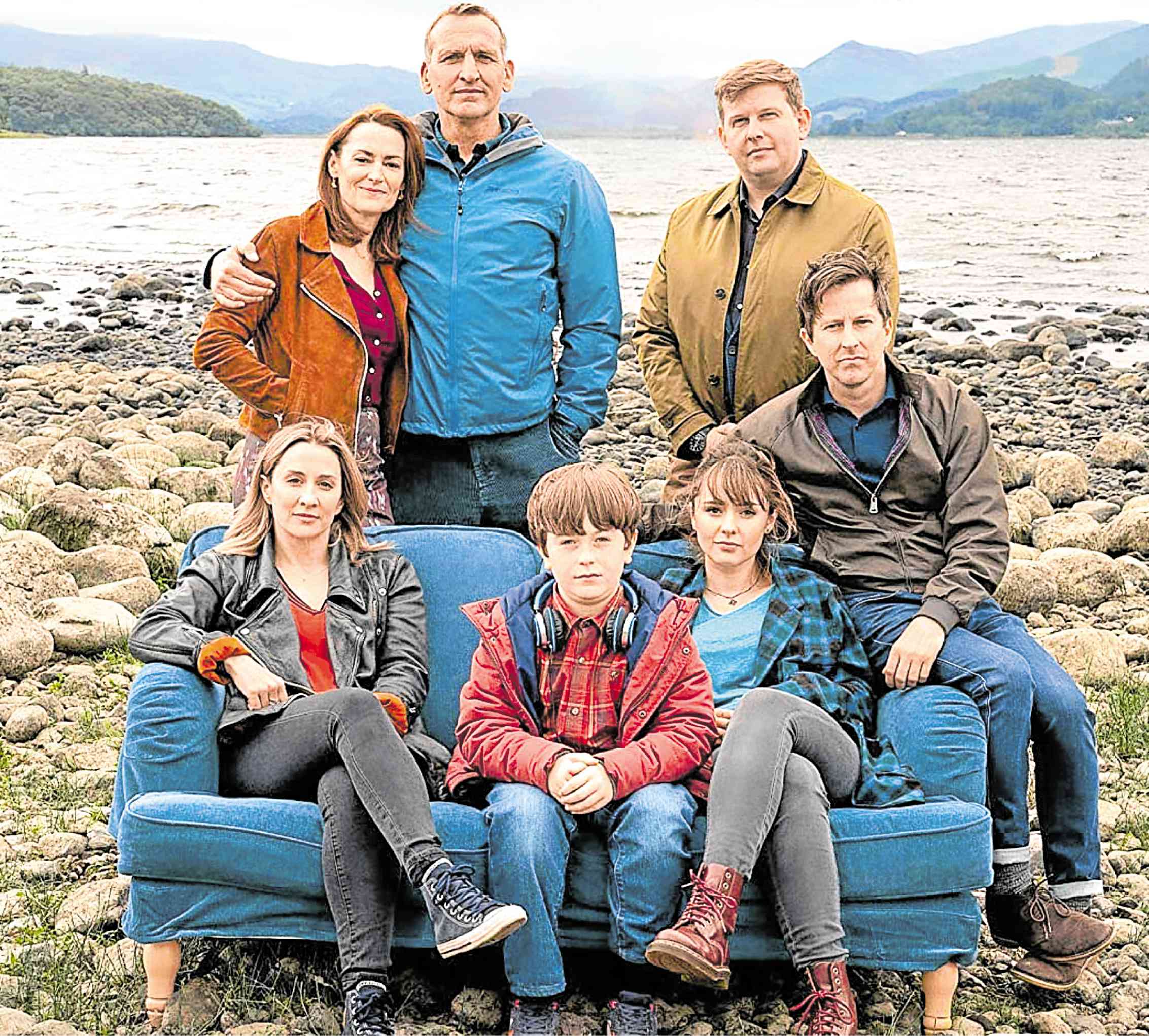There are screeners sent to us by TV and streaming networks that entertain, inform, provoke or move us to tears. But AMC’s six-part miniseries “The A Word,” whose must-see third season premieres on Sundance TV at 11 p.m. on Nov. 4, has swept us off our feet and stolen our heart, as much for its “unromanticized” depiction of autism and Down syndrome as it has for its all-too-relatable portrayal of family life in the face of physical and emotional challenges.
“We’re not soapboxing,” pointed out lead star Christopher Eccleston (“Doctor Who,” “Thor: The Dark World,” “28 Days Later,” “Shallow Grave”) in a New York Post article last Wednesday. “I feel it’s very important for visibility and inclusiveness. [The show is about] life, really—all done with great humanity and love … [and] presented with humor.”
That’s a spot-on description, bolstered further by a 93-percent approval rating on Rotten Tomatoes.
More than its enviable critical appraisal, however, it’s how the show comes off as a gentle plea for compassion and acceptance that truly resonates with viewers wanting less teleserye-type sensationalism and heartfelt sincerity in these unkind and stressful times.
By casting actors who wear their beating hearts on their sleeve, “The A Word” manages to cogently frame its “dramedic” take on disability with a mishmash of intersecting themes, including divorce, self-esteem woes, unplanned pregnancy, unmitigated guilt, unrealized ambitions and unmet expectations in life.
The aforementioned issues may seem a lot for its characters to deal with and its actors to thespically chew on but, while they’re often fodder for vein-bursting ululations of grief or slam-bang histrionics, the series veers as far away from any form of tear-jerking excess.
It’s a storytelling tack that, as a result, often caught us off-guard and left us bawling our eyes out, even in the absence of deliberate schmaltz or emotional manipulation. Who knew subtlety could be so powerful?
Would first-time viewers understand what the show is about even with Season 3, set two years after events at the end of its sophomore season, already under way? Absolutely, although previous episodes could work as each character’s backstory.
The series examines how its now 10-year-old autistic protagonist, Joe Hughes (Max Vento), affects the lives of everybody around him, including his newly divorced parents Paul (Lee Ingleby) and Alison (Morven Christie), his pregnant but unmarried half-sister Rebecca (Molly Wright), his affirmation-seeking Uncle Eddie (Greg McHugh) and his well-meaning but abrasive and “emotionally tone-deaf” grandfather Maurice (Christopher Eccleston).
While Rebecca, who has called it quits with her boyfriend at university, comes to terms with impending motherhood, Alison and Paul begin seeing prospective partners—she with divorcee Ben (David Gyasi), and he with perpetually skittish teacher Sarah (Gemma Paige North). Even Maurice is cozying up to the idea of making his “casual” romance with his choir director Louise (Pooky Quesnel) more permanent.
Adding to the topical “melee” richly provided by this bunch are characters with Down syndrome—more boon than bane for a story about inclusivity and assimilation.
In this regard, we see crucial side stories bubbling to the surface of Joe’s world, set and shot in the United Kingdom’s rustic and visually ravishing Lake District, like those involving Mark (Travis Smith) and Ralph (Leon Harrop).
Mark is one of Paul’s employees at the pub, while Ralph is the teenage son of Louise who comes of age when he shockingly decides to take his relationship with his girlfriend Katie (Sarah Gordy, another lovely actor with Down syndrome) to the next level.
Each of these unique Down syndrome-related stories are handled with care, humor and sensitivity. Ralph and Mark’s stories are made even more fascinating by their bold attempts at independence, which soon become sources of conflict and concern.
While Mark announces his intention to enlist in the Army, Ralph decides to ask for Katie’s hand in marriage! Maurice gets his pride pricked when unsuspecting Ralph picks Josh (Joe Sproulle), a childhood buddy, to be his best man, instead!
These are just two of the potentially sappy moments that manage to keep their mushy possibilities at bay. But each episode doesn’t need all that schmaltz to genuinely tug at viewers’ heartstrings.
Each episode has its inherent charm, but we’d readily single out Episode 3 for the string of precious dramatic moments that demonstrates its characters’ humanity and heart-on-sleeve vulnerability.
To demonstrate: In this particular episode, Maurice picks a fight with London-bound Eddie when the latter decides to sell the family-owned brewery he had inherited from Maurice. Meanwhile, when Alison gets the boot in her job as a waitress, she’s forced to deal with the lingering sense of failure in her life.
But Alison gets some soothing emotional reprieve when Joe drags her to Paul’s house to commiserate with his father, who he felt was upset about something that happened during the day.
It’s moments like this—seeing flawed but deeply loving individuals coming together for reassurance, or finding Joe sleeping snugly in his dad’s arms—that make viewers realize how love and family can transcend every obstacle, disability included!
